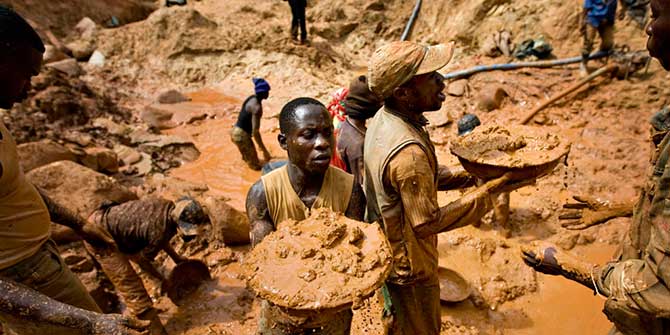LSE alumna Anaelle Azoulay discusses how a new project aimed at providing access to clean water could inspire other entrepreneurs to address international development issues.
663 million people lack access to safe drinking water. That is almost exactly ten times the whole population of the United Kingdom. Of these 663 million people, about 300 million live on the African continent.
The consequences of this lack of clean water are alarming. In developing countries, 80 per cent of illnesses are linked to poor water and sanitation. Children are the primary victims and about 2,000 children under the age of five die each day from diarrheal diseases, which directly result from poor water quality and inadequate sanitation.
Yet, citing numbers will not change anything. I strongly believe that making people feel guilty about what is happening in the world and what is, most of the time, out of our control is not the solution to any issue, and particularly not to international development issues. One does not choose to be born in one part of the world or another. But to try and change our world for the better, what matters most is information. Indeed, taking action starts by understanding the reasons behind such shocking numbers.
On September 25, 2015, the United Nations and its 193 member states adopted the 2030 Agenda for Sustainable Development. Through this process, water and sanitation became a separate ‘global goal’, which now takes into account the whole water cycle including, among other things, the maintenance and management of water and wastewater. Contrary to popular belief, the water issue is not a problem of supply but of distribution and management of resources. As a recent graduate of the LSE’s Media, Communication and Development program, I have learned that how a development project is implemented matters much more than the idea of the project itself, which is also probably true for any business or startup.
In Africa, groundwater is the most resourceful when it comes to providing clean water especially to the rural parts of the continent. However, drilling remains quite expensive. More importantly, groundwater must be monitored frequently to avoid contamination by different sources such as metals or septic tanks. Drilling deeper into the ground can sometimes avoid such contamination. However, water can also be contaminated later on if the water that has been fetched is kept too long in an inadequate recipient for instance. These water issues can also be understood as a more global reflection of the difficulties met by development workers in general.
Indeed, more recent international development theories remind us of the importance of the concept of empowerment versus dependency. In other words, for the success of any development project, local populations need to be involved in the whole process and become active participants in the project. They need to feel empowered to become the actors of their own destiny and not just passive beneficiaries. In this way, the monitoring and management aspects can be shared, locally adapted, and therefore more efficient. On the contrary, development projects that create a state of dependency for the locals will only reproduce the same unsustainable models of development over and over again. Many NGOs and international organisations have started to change their development models or create new ones based on this new theory.
Going back to the issue of water, a recent project launched by Thomas Kacou, a 26-year-old Ivorian social entrepreneur, is a good example of putting these priorities into practice. To provide access to clean water to the millions of Africans in need, Thomas Kacou started It’s about my Africa, a crowdfunding website dedicated to African solidarity, and partnered with SunWaterLife, a French startup company that created the Aqualink system, a portable suitcase equipped with solar panels and capable of purifying up to 800 litres of polluted fresh water a day. To ensure the quality of the water and its sufficient provision to the populations, the idea is to train and involve local people to act as entrepreneurs and managers of the system themselves. This will be made possible thanks to the field knowledge and presence of SunWaterLife in Africa. It’s about my Africa has already raised more than 12,000 euros, which will soon be used to provide three suitcases to Madagascar, Chad and Ivory Coast. This example may inspire more entrepreneurs to address international development issues by fully taking into account the needs of local communities while using innovation as leverage to reach as many people as possible.
To find out more about It’s about my Africa, follow this link to their website.
Anaelle Azoulay graduated from the MSc in Media, Communication and Development at the LSE in 2015. She enjoys travelling, discovering new cultures and hopes to start her own NGO one day.
The views expressed in this post are those of the author and in no way reflect those of the Africa at LSE blog or the London School of Economics and Political Science.





Water crisis has been a prevailing problem in Africa, multiple of efforts have been made to make it responsibly accessible , and these efforts have yielded to some extent. But we permanently have to tackle it to be sustainable through new models of water sourcing and management which will be community inclusive and participative like SunWaterLife in Africa initiative. We cannot be permanently benefit without being partisan and active, we need to come up with new ideas and innovations that will help alleviate water challenges.
Water issue has been one of the major concern in African way of Life, I have just read an article in one of the website here https://mubakuvillage.org/eaten-alive-in-murchison-falls/ and I personally can’t believed if people still die due to the lack of water in Africa. Something need to be done to local outreach.